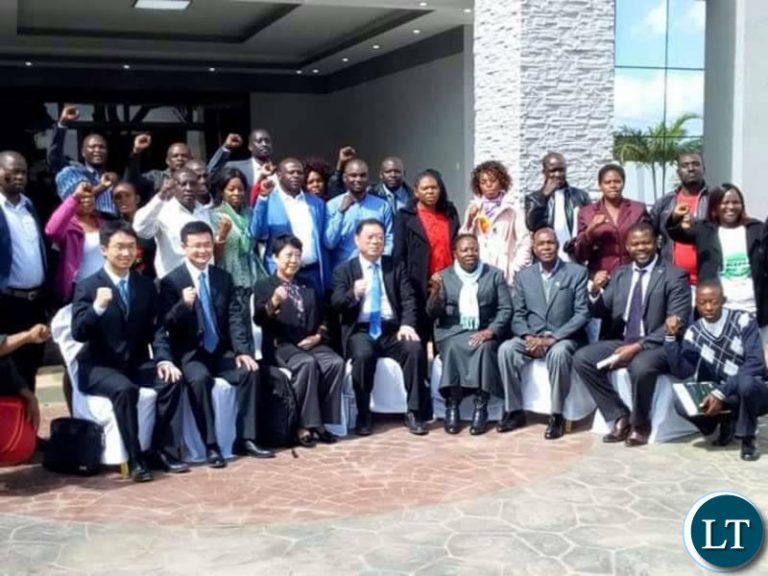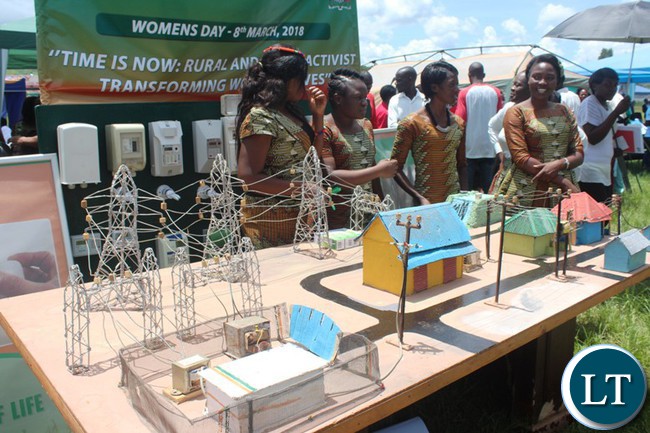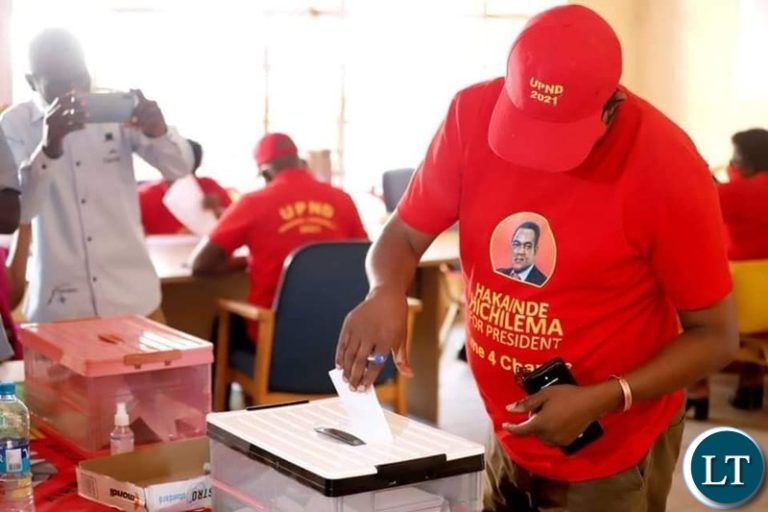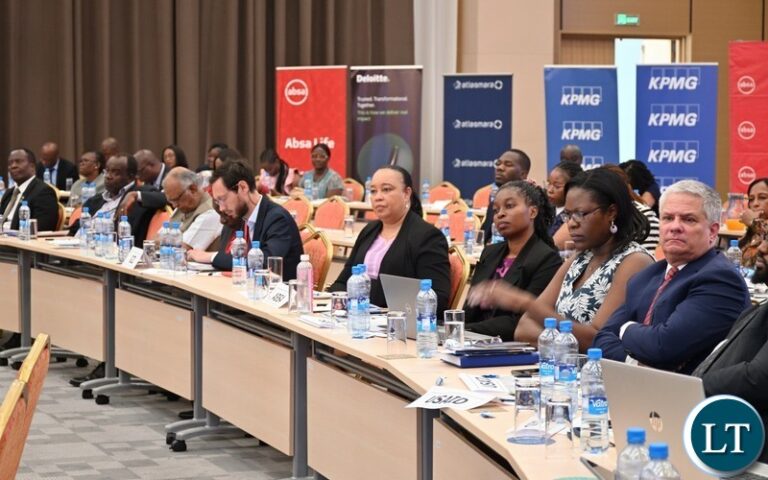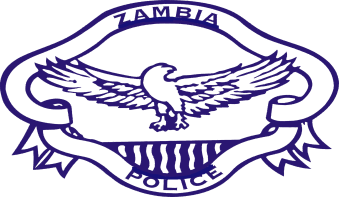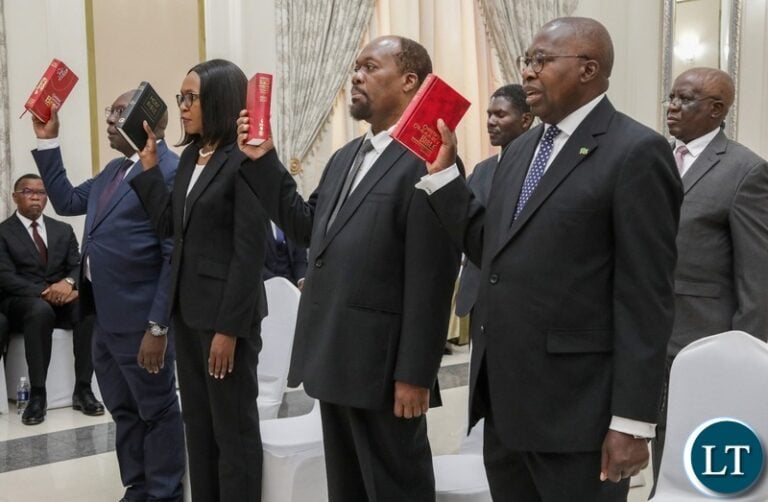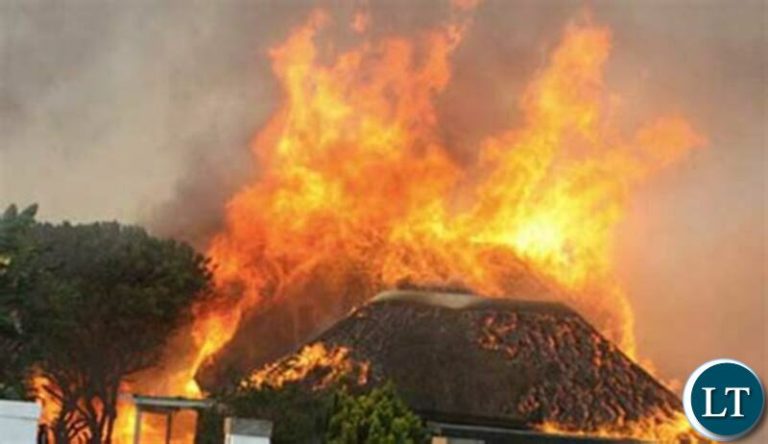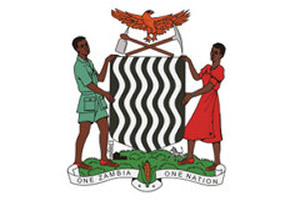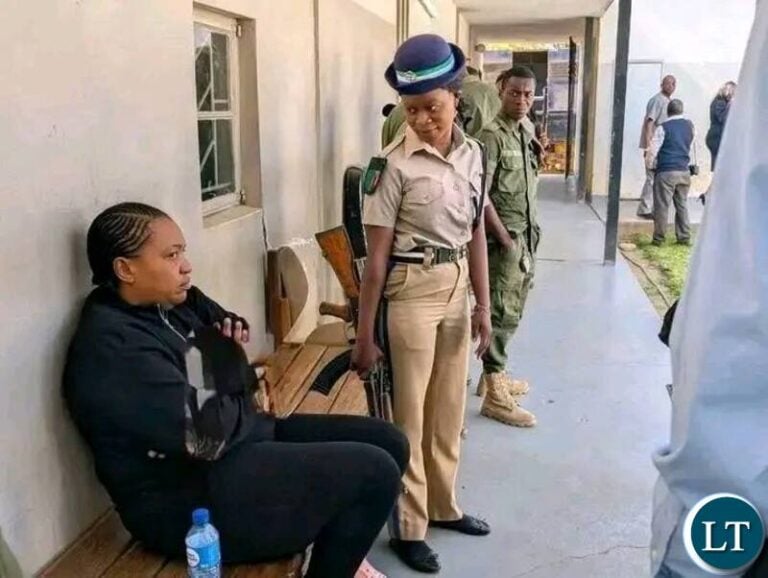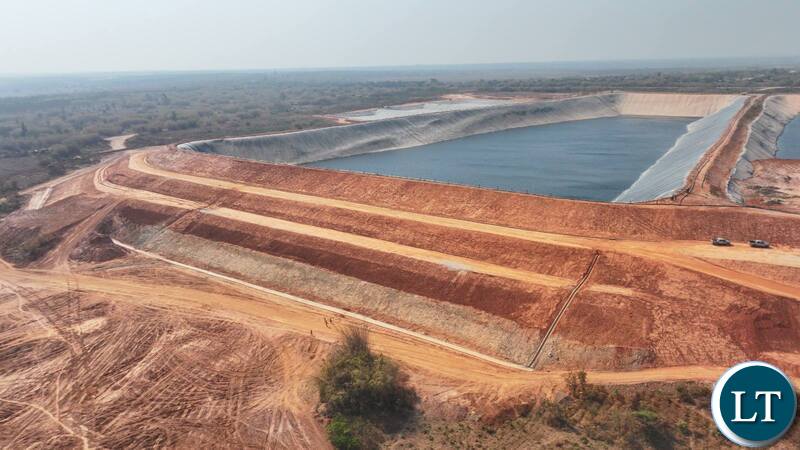Zambia’s 2026 election: How Hichilema is tilting the playing field against opponents
By Sishuwa Sishuwa
Zambia’s enviable record of 35 years of peaceful democratic elections appears to be under threat. With less than a year remaining before the country goes to the polls on 13 August 2026, several disturbing irregularities in the electoral process are emerging. Incumbent President Hakainde Hichilema – laying the groundwork for a possible rigged outcome – has taken over the control of the main opposition party, repeatedly abused the police to block opposition parties from holding peaceful public assemblies, appointed ruling party supporters to lead the electoral management body, weaponised the courts to primarily function as assassins of his political opponents and is rewriting constitutional rules to secure electoral advantage.
In their book How Democracies Die, Steven Levitsky and Daniel Ziblatt wrote that “Sometimes, democracy dies with a bang. But more often, democracies die slowly. In plain sight, at the hands of elected officials. Through the gradual erosion of political norms and institutions. Because there is no single moment — no coup, declaration of martial law, or suspension of the constitution — in which the regime obviously “crosses the line” into dictatorship, nothing may set off society’s alarm bells. Those who denounce government abuse may be dismissed as exaggerating or crying wolf. Democracy’s erosion is, for many, almost imperceptible.”
This gradual slide into authoritarianism has been playing out in Zambia where three broad essential elements of how democracies die have emerged over the last four years: the election of an authoritarian leader, the abuse of governmental power, and the complete repression of the opposition. As I show below, President Hichilema is insidiously and in piecemeal fashion tilting the playing field against opponents ahead of next year’s polls.
Controlling the main opposition party
Hichilema came to power in August 2021 after defeating then President Edgar Lungu of the Patriotic Front (PF) in an election that saw the country evolve into a two-party system. His governing United Party for National Development (UPND) won 82 of the 156 parliamentary seats directly elected under first-past-the-post, while the PF, which became the main opposition, secured 60. Independents won 13 seats. Importantly, the losing party, unlike after the previous instances of transfers of power in 1991 and 2011, did not crumble in the aftermath of the election. Its bases among the electorate – especially in the Copperbelt, Luapula, Muchinga, northern, and eastern provinces – and in parliament remained stable. The PF has benefited from changes to Zambia’s constitution introduced by Lungu in 2016 that made it harder for MPs to cross the floor, which now trigger a by-election in which the incumbent is barred from running. This enforced discipline has enabled the main opposition party to retain control over its members. The abolition of the position of deputy minister and the limit of 30 cabinet ministers have also reduced the incumbent president’s capacity to dispense patronage, aiding the PF’s resilience.
In office, Hichilema’s record has generally been poor. This has reduced his party’s appeal in the eyes of non-supporters. As a result, the PF has not suffered mass defections to the governing party as was the case in the aftermath of previous transitions. The result of this political context is that the former ruling party’s voting base has not disintegrated and if the PF was to find a credible leader, it could well win the 2026 election and even increase its numbers in parliament. Alarmed by this prospect, especially after the main opposition won a parliamentary by-election in Eastern Province and threatened to win two more on the industrial Copperbelt before its candidates were illegally excluded, Hichilema moved swiftly to take control of the party in October 2023. Using the police and the Registrar of Societies, the President installed a pliant PF MP, Miles Sampa, as the party’s new leader following a state-backed illegal convention. Sampa, with little support from lawmakers and the rank and file, immediately reconstituted the organisation’s leadership in parliament, appointing Robert Chabinga, another malleable PF MP, as parliamentary leader of the opposition and the party’s Secretary General. He also announced that the PF had formed a pact with Hichilema and the UPND.
When other PF leaders sued Sampa over his questionable election and other adverse actions, the judiciary allocated the cases to mostly Hichilema-appointed judges who simply sat on the matters. The failure to resolve these factional battles prevented the PF from fielding candidates in all subsequent by-elections. Pitted against weak, smaller, and unestablished parties, this uneven playing field allowed the ruling party to easily win nearly all of them. Later, Sampa U-turned, reconciled with the PF leaders who had sued him, told the courts that his election was indeed illegal, and asked the judge to reinstate the office bearers he had replaced in the party and in parliament. However, the resolution of the PF’s factional battles was dashed when Chabinga moved swiftly to immediately declare himself the party’s president, even in the absence of any election. As well as giving him state protection, Hichilema got the Registrar of Societies to formally recognise Chabinga as the PF new leader. Chabinga, who has no support from most PF MPs and members, has since announced that the PF will back Hichilema in the 2026 election. Like those before him, matters involving Chabinga and the PF’s legitimate leaders have stalled before Zambia’s increasingly partisan judiciary.
In taking control of the main opposition party using the Registrar of Societies and his puppet in Chabinga, Hichilema is motivated by three main objectives. The first is to delay the resolution of the PF leadership wrangles using regime-friendly judges to the benefit of the UPND. Over the last one year alone, the government has induced vacancies in several constituencies by using the police to arrest incumbent MPs – either from the PF or independents– on what appears to be politically motivated charges before getting regime-friendly magistrates to convict them, often after speedy trials or unusual judicial efficiency. In all the ensuing by-elections, the Electoral Commission of Zambia, led by Hichilema’s former personal lawyer, has rejected nominations from candidates seeking to run on the PF ticket using a recently introduced administrative requirement: that any aspiring candidate sponsored by a political party must produce an adoption certificate signed “by both the secretary-general and president as reflected at the office of Registrar of Societies”. This weaponisation of formal institutions – the Registrar of Societies, police, judiciary, and electoral body – has enabled the ruling party to win the seats with relative ease and increase its majority in parliament, where Hichilema is desperately seeking to raise the two-thirds majority support he requires to make changes to the constitution (more on this later).
The second objective of Hichilema’s control of the main opposition party using a captured leadership is to prevent any prospective presidential candidate from challenging him using the PF ticket in the 2026 election. Four years after it was ousted from power, the former ruling party still commands nationwide structures and a stable base. Were the PF to find and field a credible candidate with an ability to articulate an alternative vision that resonates with the concerns of majority voters and who appeals across its core support base, different interest groups, and independent voters disappointed with Hichilema’s record in office, the main opposition party can easily bounce back to power. At the very least, a stronger presidential candidate on the PF ticket would prevent Hichilema from securing over 50 percent of the vote he needs to avoid a second ballot. By installing Chabinga as the president of the main opposition party, one who is officially recognised as such by the Registrar of Societies, Hichilema has effectively eliminated the prospects of having a PF presidential candidate on the ballot. Any person seeking to use the PF ticket to challenge Hichilema would require an adoption certificate signed by Chabinga for his or her nomination to be considered valid by – as I show below – the UPND-aligned electoral management body.
The third objective behind Hichilema’s capture of the main opposition is to prevent the over 50 PF members of parliament from defending their seats on the party’s ticket. Their seats are mostly held in the Eastern and Bemba-speaking provinces of Muchinga, Luapula, and Northern – constituencies where the UPND has fared poorly in previous general elections. Like in the case of a presidential candidate, Chabinga is unlikely to issue a certificate of adoption to a PF prospective parliamentary candidate who does not recognise his leadership. As a result, most of the incumbent PF MPs will have to find alternative platforms on which to defend their seats. This scenario would increase the ruling party’s chances of winning the seats as the UPND will be competing against candidates standing either as independents or on relatively unfamiliar or unestablished parties. Given that the UPND is likely to retain most of the parliamentary seats it won in 2021, mainly in its strongholds, Zambia may effectively emerge from the next general election as a one-party state. If Hichilema’s ongoing theft of the main opposition party is not stopped by the judiciary, the ultimate loser will be the country’s multiparty democracy.
Blocking opposition meetings
Ahead of the 2026 election, Hichilema has repeatedly used the police to suppress the right to peaceful public assembly of opposition parties whilst he himself continues to campaign unhindered. In principle, opposition meetings are allowed by law. In practice, they are largely banned. To hold public rallies, political parties are required by the Public Order Act (POA), a colonial-era legislation that was used to police African nationalists, to “give police at least seven days’ notice”, specifying the date, place, and duration for the assembly. If the police indicate an inability to supervise the event for any reason, the POA allows the state institution to inform the convenors to propose an alternative date and time. Violations of this law attract a six-year prison sentence.
The POA insulates members of the executive from its requirements, stating that the notification of any planned rallies “shall not apply to any public meeting convened by or at the request of and intended to be addressed by the president, the vice-president or any minister”. Hichilema has exploited this legal tool to prevent his political opponents from exercising the right to peaceful assembly, even when he continues to conduct political meetings. Over the last four years, the police have blocked nearly all public rallies called by opposition parties outside of by-elections, always citing unspecified security concerns or inadequate manpower. As observed by Socialist Party General Secretary Cosmas Musumali, Hichilema, having suffered similar restrictions when he was in opposition, had campaigned on a platform of expanding democratic space, if elected.
“We have applied for 29 rallies [since the last general election in 2021), and all have been denied. For the past four years, we have not held a single rally. At least under the PF government, we managed to hold two,” Musumali stated. “In terms of building democratic space, the UPND has fared worse than the PF. That is unacceptable and dangerous.”
Yet whenever the opposition have threatened to proceed with their rallies, the government has dispatched hundreds of police officers to the designated venues to quash the meetings. The inspector general of police, Graphel Musamba, recently explained that “we don’t allow opposition rallies because the other side [the ruling party] is always ready to attack them [the opposition]”. This is damning and undeniable evidence of political suppression. As well as dragging his feet in relation to amending the POA as he had promised in opposition, Hichilema has ignored repeated calls from civil society and the opposition for him to dismiss the police chief. Instead, the president has publicly praised the errant official as doing a great job and regretted not hiring him earlier.
In addition to violating the right to peaceful public assembly, freedom of association (those denied permission to meet are members who associate with a given political party), and free speech (since people meet to talk), stopping the opposition from mobilising voters has prevented the raising of political temperature expressed through big-sized rallies that have historically served as a barometer of the public’s desire for change. Large-scale rallies of opposition parties show an incumbent president’s declining political support and serve as a source of courage for elites in formal institutions like the judiciary to do the right thing. For instance, ahead of Zambia’s 1991, 2011, and 2021 elections, all of which resulted in the defeat of the sitting president and were preceded by well-attended opposition rallies, courts that had all along shown timidity and subservience to the executive suddenly sprang to life and made several decisions against the executive.
Thanks to Hichilema, and for the first time in over three decades, opposition parties are heading into a general election campaign without the benefit of mobilising voters and selling their policy appeals through public rallies.
Packing the electoral commission with loyalists
Competing political elites and the public more generally are likely to retain trust in an election management body that is led by professionals widely seen as impartial and nonpartisan, appointed by an incumbent president who exercises restraint in deploying his or her institutional prerogatives. Following the re-introduction of multiparty politics in 1991, the ability by successive presidents to resist the temptation to use their temporary control of institutions to maximum partisan advantage explains why Zambia’s democracy has endured in comparison to others elsewhere in Africa. Unfortunately, Hichilema has abandoned this established democratic norm that has undergirded elite and popular perceptions of legitimacy of the country’s democratic system over the last three decades. Ahead of the 2026 election, he has taken key decisions that seriously erode public confidence in the Electoral Commission of Zambia (ECZ).
By law, the leadership of the ECZ consists of five commissioners appointed by the president, including the chairperson and the deputy who serve on a seven-year contract, renewable once. After assuming office, Hichilema wrote to the commission chairperson and deputy chairperson, both of whom were appointed by his predecessor in 2015 and had managed the historic 2021 election, that he would not be renewing their contracts that were due to expire in July 2022.
The president then appointed Mwangala Zaloumis, his former personal lawyer, and Mcdonald Chipenzi, a known supporter of the ruling party, to replace them as commissioners. Hichilema, overlooking the experienced three commissioners who all had been appointed by his predecessor between 2018 and 2020, immediately promoted his former personal lawyer to the position of chairperson. There are four important consequences of the changed leadership and composition of the commission.
One is that this is the first time that the commission is led by a person who has never held judicial office. Since its creation in 1996, the ECZ has benefited from having as chairpersons a series of former high court or supreme court judges who commanded the respect of all political players and enhanced its credibility. Zaloumis’s nomination, which required a simple majority to be confirmed, was opposed by the opposition in parliament but went through after only UPND MPs supported it.
The other is that this is the first time in its history that the ECZ has commissioners with known ties to the sitting president or party in power. While Zaloumis was Hichilema’s lawyer, Chipenzi had reportedly sought nomination to parliament on the UPND ticket but lost in the primaries. This compromised leadership may help explain why the commission has introduced new nomination guidelines such as the earlier cited requirement that any aspiring candidate sponsored by a political party must produce an adoption certificate signed by the leader who is recognised by the Registrar of Societies – a move widely seen as aimed at knocking out PF candidates and advantaging the ruling party.
Another implication, mainly for the chairperson and the deputy, is that it pays to be unprofessional. The previous leadership appointed by Lungu had acted with professionalism and neutrality in the last general election. By not renewing their contracts, Hichilema effectively dismissed them. This is a lesson for current and future leaders to be partisan. It was perhaps unsurprising that Zaloumis and her team recently hired Brown Kasaro – another person with reported ties to the ruling party and whose appointment was rejected by opposition parties – as the chief electoral officer of the commission. Kasaro, who had previously worked for the electoral body before he was sacked for suspected links to then opposition leader Hichilema, has since announced that the ECZ is targeting to “register 3.5 million new voters ahead of the 2026 general election and increase the total number of registered voters from over 7 million to around 10.5 million”. Given the limited time remaining before the next election, opposition leaders have branded this aspiration as a near impossibility, criticising it as an attempt by the ruling party to inflate the number of registered voters and prepare the public’s mind for purposes of potential vote manipulation.
The final consequence is the lack of ethnic-regional diversity — a constitutional requirement in public appointments — in the new leadership of ECZ. Whereas all previous presidents attempted to reflect the ethnic diversity of the country when making appointments to the commission, Hichilema’s two picks come from Southern and Western provinces. This means that four of the designated five commissioners who will oversee the 2026 election hail from one region that typically votes for Hichilema. There is currently a vacancy on the commission as the fifth and only commissioner who – like the other two whose contracts were not renewed – hailed from another region had his contract not renewed by Hichilema when it expired in June. Given the increasingly ethnic-regional polarisation in Zambia today, a narrow election victory for Hichilema in 2026, however genuine, may be interpreted as fixed by a commission whose composition is unduly dominated by individuals from one half of the country.
In dispatching his supporters to the electoral body, Hichilema has abused institutional prerogative to his maximum political benefit, risking the standing of an institution whose credibility depends on the perceived impartiality of its commissioners.
Reconstituting the courts
Ahead of the general election and to increase his chances of winning a second term, Hichilema has reorganised the courts for two partisan objectives aimed at dealing with what happens before the election and securing his political interests in the event of any post-electoral disputes.
The first objective is disqualifying political opponents who are seen as more likely than others to undermine his chances of re-election. Instead of creating a merit-based and transparent system of appointing judges as he had promised in opposition, the president has exploited the same system he previously denounced as defective to appoint his own set of judges to the country’s superior courts. These are the ones he has relied on to achieve his objective. For instance, Hichilema appointed four judges to the Constitutional Court in 2023 who then went on to bar former president Lungu from standing in the 2026 election after the president sacked three justices who had previously ruled in favour of his predecessor in the same case. Other Hichilema-appointed judges are the ones who have frustrated the already discussed resolution of the PF leadership wrangles.
Hichilema has also sought to disqualify some of his political opponents by reconstituting the magistrate’s court in Lusaka where most opposition leaders live before having them arrested and possibly convicted on politically motivated charges. To achieve this objective, Hichilema first reconstituted the Judicial Service Commission (JSC) – the body with the power to appoint, dismiss or transfer judges – with his own appointees soon after assuming office. Then in May 2022, he got the JSC to transfer nearly all the senior resident magistrates from Lusaka to rural areas and had them replaced with those who were deemed as regime friendly. Afterwards, and over the course of the next two years, nearly all opposition leaders were arrested on a variety of charges ranging from sedition, libel, and espionage to hate speech and unlawful assembly. These include Fred M’membe of the Socialist Party, Edith Nawakwi of the Forum for Democracy and Development, Sean Tembo of the Patriots for Economic Progress, and Dan Pule of the Christian Democratic Party.
While Nawakwi died recently with the charge of sedition accompanying her to the grave, the cases of the remaining opposition leaders remain active before the Lusaka magistrate’s court. In addition to distracting the opposition from political work, these cases may result in the disqualification of those convicted. Zambia’s Constitution provides that “A person is disqualified from being nominated as a candidate for election as president if that person is serving a sentence of imprisonment.” Through the trumped-up charges, Hichilema hopes that the magistrates rewarded with transfers to the capital city would, as an incentive for their promotion to the High Court, convict and send his political rivals to prison before the next election. Once this is done, the next stage would involve exerting pressure on the courts to delay the determination of the likely appeal cases that would follow the convictions. Failure by the opposition to overturn their sentences before the nomination for the 2026 election would then empower the Hichilema-aligned electoral commission to exclude the candidacy of those convicted on the argument that they are “serving a sentence of imprisonment” and are merely on appeal. This way, the nominations for the general election, or the election itself, may find Hichilema’s political opponents weighed down by court cases or in jail.
Another prominent opposition politician, Chishimba Kambwili, a Bemba speaker seen as a potential PF leader with the capacity to mobilise support using ethnic and populist strategies, was recently jailed for five months for hate speech against Hichilema’s Tonga ethnic group. Kambwili had ridiculed the voting patterns of Tonga speakers in Southern Province where Hichilema and the UPND have consistently received an average of 80 percent support in successive elections. The Bembas, found in Luapula, Muchinga, Northern and urban Copperbelt, are Zambia’s largest ethnic-language group, accounting for about 40 percent of the country’s population. Since independence, this group has always had a political figurehead seen as commanding Bemba support. Key previous Bemba leaders have included former vice-president of Zambia Simon Kapwepwe (who died in 1980), former president Frederick Chiluba (in office from 1991-2001) and former president Michael Sata (who retained Bemba support from his time in opposition politics starting in the 2006 election to his death in office in 2014).
Lungu inherited and retained much of Sata’s support in Bemba-speaking constituencies after he appointed several Bemba speakers, including Kambwili, to his cabinet. With a gift of the gab, the abrasive Kambwili is seen by some as a possible PF leader who can hurt Hichilema’s re-election prospects if the main opposition party manages to resolve its leadership challenges. As his jail sentence is set to end in December 2025, the former cabinet minister, who has not hidden his presidential ambitions, would be free to challenge Hichilema. To prevent this prospect, Hichilema’s administration is now seeking to have Kambwili convicted and imprisoned over a separate case of unlawful assembly following a meeting that took place at his house in 2023. As may be the case with other opposition challengers, the presidential nominations for the 2026 election, or the election itself, may find the Bemba strongman in prison.
The second objective of reconstituting the courts before the general election is to secure his stay in power in case of a rigged outcome. Crucial here is the constitutional court, which has the final say on all matters relating to the interpretation of Zambia’s Constitution, including the election of the president. For instance, if an election petition is filed against the president-elect after elections, the ConCourt has the legal mandate to hear the matter within 14 days of its filing and can dismiss the petition or call for a fresh poll within 30 days. The decision of the ConCourt on any post-election case brought before it is final. In anticipation of a petition against his possible re-election, Hichilema has moved to reconstitute the court in two fundamental ways.
First, the president has added four new judges to the court to join the hitherto existing seven who were all appointed by his predecessor. After Hichilema sacked three of the justices he found, the total number of judges on the court now stand at eight: four appointed by him and another four by Lungu. As the court handles fewer cases annually, there is hardly any justification for increasing its numbers. However, Hichilema, recently passed a law that allows him to appoint up to five additional ConCourt judges, a move that reflects his attempt to pack the court and secure political advantage ahead of a possible petition against his election next year. So far, none of the four judges he has appointed have ruled against him in cases where he has clear political interest. There is no reason to believe that those coming to join them – especially if appointed under the same system he previously denounced as flawed – will behave differently.
Second, Hichilema promoted one of the four judges he appointed — his long-time friend who does not even possess the constitutionally prescribed qualification for appointment to the court, namely, specialised training in constitutional or human rights law and is only studying for the same now — to the position of deputy president of the concourt. In addition to presiding over the court in the absence of the president, the deputy is also the one who determines, using his discretion and without any formal criteria guiding or constraining him, the allocation of cases and the composition of the panel that hears cases. For instance, the full bench of the constitutional court is constituted by an uneven number of not less than five judges. This means that to handle a case brought against Hichilema or his opponents, the deputy president is required only to constitute a panel consisting of at least three of Hichilema’s appointees and two others. It is reasonable to assume that Hichilema strategically placed his friend in this position as a way of “rigging” case outcomes from the beginning. If a sitting president can both rig an election and control the constitutional court, it is hard to see how he or she can ever be voted out of office.
Corrupting the Constitution
In May this year, and against widespread opposition from civil society, opposition parties and ordinary citizens who decried the inadequate public consultation preceding the process, Hichilema’s administration published the Constitution of Zambia (Amendment) Bill Number 7 of 2025. As argued by others, the proposed changes, despite the rhetoric of inclusivity, are largely self-serving and mask an authoritarian agenda. If enacted into law, they would have dreadful consequences on the integrity of the 2026 general election because they encourage corruption and undermine the principles, values, and legitimacy of the democratic system. For instance, Bill 7 seeks to legalise the use of public resources for political campaigns and to create 55 new constituencies, mostly in UPND strongholds, that could help the ruling party retain a clear parliamentary majority even if it loses support elsewhere.
In June, the Constitutional Court declared the process that gave birth to the Bill as unconstitutional. By majority decision, the court ruled that the proposed amendments were initiated without wide consultations with the people and ordered the government to restart the process, this time properly. Tellingly, the majority judges were all appointed by Lungu while the dissenting minority that saw nothing wrong with the bill were all Hichilema appointees. Worryingly and in clear defiance of the court order, Stafford Mulusa, the ruling party’s parliamentary chief whip, has since announced that the government will reintroduce Bill 7 in the current parliamentary session. A long serving MP revealed that a named government leader approached them recently to back the bill: [Name of the government leader withheld] told me that each MP who agrees to support Bill 7 will receive K2 million. This includes UPND MPs because some of them have expressed discomfort with Bill 7….In 2020, the PF were offering MPs K800, 000 to support Bill 10 [a failed constitutional amendment bill that contained many of the provisions that Hichilema is now seeking to enact but which he had rejected when proposed by his predecessor].”
In addition to a desire to entrench ruling party dominance that would later allow him to make further changes to the Constitution such as removing presidential term limits, Hichilema’s desperation to pass the Bill rests on two primary motivations. The first is to eliminate the risk of his potential disqualification from standing as a presidential candidate in the 2026 election. Article 52 of Zambia’s current constitution allows a person to petition a court to invalidate the completed nomination of a candidate to any elective public office “for corruption” within seven days of the close of nominations. Corrupt incumbent presidents are vulnerable targets here. To illustrate, if anyone has evidence of Hichilema’s corruption, say, in a major mining or energy deal, they can challenge his nomination in the Constitutional Court, seeking his disqualification from the presidential race for corruption. If the petitioner presents irrefutable evidence of the president’s corruption before ConCourt, not even his appointed judges may save his candidacy. To kill this prospect, Hichilema, who has extensive business interests in Zambia but refuses to publish his asset declarations, is proposing in Bill 7 to remove corruption from the Constitution as a sufficient ground on which anyone may petition a court to invalidate the completed nomination of a candidate.
The second motivation behind Hichilema’s desperation to pass the Bill is to create room for the exclusion of rival candidates through court-engineered disqualification of duly nominated candidates. Presently, Article 52 (6) of the Constitution states that “Where…a court disqualifies a candidate for corruption or malpractice, after the close of nominations and before the election date, the Electoral Commission shall cancel the election and require the filing of fresh nominations by eligible candidates and elections shall be held within thirty days of the filing of the fresh nominations.” In Bill 7, Hichilema is proposing to delete this clause and replace it with the following: “Where a candidate has been disqualified by a court, after close of nominations, the candidate shall not be eligible to contest the elections, and the election shall proceed to be held on the date prescribed for holding the election.”
If passed, the consequences of the proposed change would be twofold. One is that unlike in the current scenario where validly nominated candidates can only be disqualified for reasons of either corruption or malpractice, judges will have the sole and unregulated discretion to determine the grounds for disqualifying any candidate from running for public office. Two is that once disqualified, the affected political party will not be given an opportunity to present an alternative candidate for election, as the poll will go ahead. To illustrate: if the opposition were to find and nominate a strong unity presidential candidate, the Hichilema-appointed judges on the Concourt may disqualify such a candidate for whatever reason (s) they can dream of, and Hichilema will be re-elected unopposed or after defeating relatively weaker candidates.
The tenacity of ordinary Zambians in resisting provocation and avoiding political violence over the last 35 years has been remarkable. One can only hope that this record endures and that the mounting irregularities around the forthcoming 2026 elections do not test the patience of the opposition and the general public to breaking point. Late former president Lungu left weak formal institutions such as the judiciary, electoral commission, and police. Hichilema has weakened them even further by sapping any semblance of remaining professionalism. Herein lies the real danger. Once public trust in these and other institutions is totally eroded, opposition to the UPND may find expression in undemocratic means or informal outlets. Already, growing levels of frustration with the government’s failure to address crippling load shedding or power cuts – lasting for as long as 20 consecutive hours a day in some places – and the escalating cost-of-living crisis have left many areas, especially in towns and cities, teetering on the brink of social unrest. It may not take much to torch this simmering discontent. Not even Hichilema, who is maintaining a veneer of running a democracy while eviscerating its substance, may survive the potential consequences of what he is, in effect, brewing.
Who, or what, will stop Hichilema?


